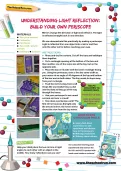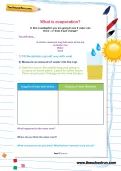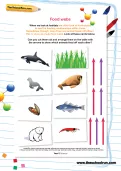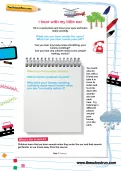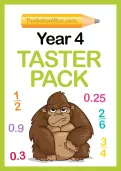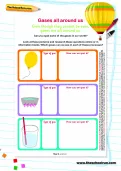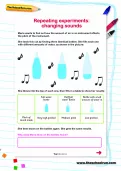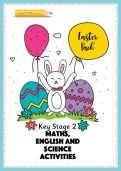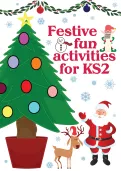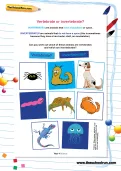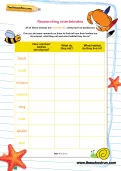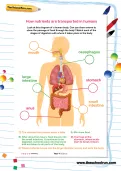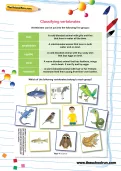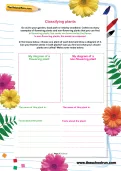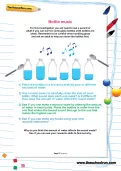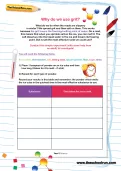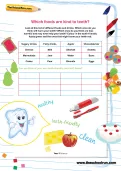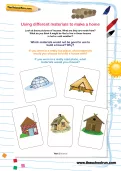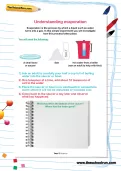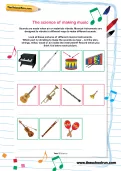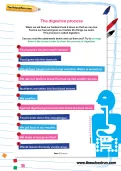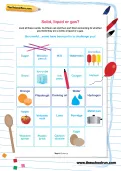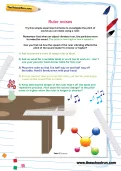Find out what your child will learn in Year 4 English, maths and science, try out a few learning activities and read our top tips about how to support their learning and development in our free, downloadable Year 4 Taster Pack.
or
Register to add to your saved resources
Gases are all around us, but they can be hard to spot! Help your child work through this investigation into the gases we can see and what they're used for.
or
Register to add to your saved resources
Already a subscriber? to view this content.
A practical investigation into pitch and how sounds change in different conditions.
or
Register to add to your saved resources
Already a subscriber? to view this content.
Get ready for some egg-y, chocolate-y, Easter-y fun! The KS2 Easter activities pack has plenty of themed maths, English and science learning opportunities to keep kids busy and learning over the spring break.
or
Register to add to your saved resources
Already a subscriber? to view this content.
With Christmas lists to write, present-delivery schedules to work out, Grotto problems to solve and light and dark experiments to try this bumper pack of festive learning activities will keep your child engaged over the Christmas break.
or
Register to add to your saved resources
Already a subscriber? to view this content.
Can you identify which of these are vertebrate and which are invertebrates?
or
Register to add to your saved resources
Already a subscriber? to view this content.
All of these animals are invertebrates (they have no backbone). Can you do some research on them to find out how their bodies are structured, what they eat and what habitat they live in?
or
Register to add to your saved resources
Already a subscriber? to view this content.
Look at this diagram of a human body. Can you draw arrows to show the passage of food through the body? Match each of the stages of digestion with where it takes place in the body.
or
Register to add to your saved resources
Already a subscriber? to view this content.
There are five groups of vertebrates. Which of the following vertebrates belong to each group?
or
Register to add to your saved resources
Already a subscriber? to view this content.
Go out to your garden, local park or nearby woodland. Collect as many examples of flowering plants and non-flowering plants that you can find. Then choose one plant of each kind and draw a diagram of it.
Can you find the seeds in both plants? Can you find out what your chosen plants are called?
or
Register to add to your saved resources
Already a subscriber? to view this content.
For this investigation you will need to ask a parent or adult if you can borrow some glass bottles (milk bottles are ideal). Remember to be careful when handling glass and ask an adult to help you clean the bottles first.
or
Register to add to your saved resources
When the roads are slippery in winter we spread grit and then salt on them. But is salt the most effective solid we could use? Conduct this simple experiment to investigate!
or
Register to add to your saved resources
Already a subscriber? to view this content.
Look at this list of different foods and drinks. Which ones do you think will harm your teeth? Which ones do you think are less harmful and may even help your teeth? Colour in the tooth-friendly foods green and the ones that might harm your teeth red.
or
Register to add to your saved resources
Already a subscriber? to view this content.
In this investigation you are going to see if water can move – or does it just change?
or
Register to add to your saved resources
Look at these pictures of houses. What are they are made from? What do you think it might be like to live in these houses in hot or cold weather? Let's investigate which materials would not be good to use to build a house.
or
Register to add to your saved resources
Already a subscriber? to view this content.
Evaporation is the process by which a liquid such as water turns into a gas. In this simple experiment you will investigate how this process takes place.
or
Register to add to your saved resources
Already a subscriber? to view this content.
Look at these pictures of different musical instruments. Which part is vibrating to make the sounds we hear – is it the skin, strings, metal, wood or air inside the instrument? Record which you think it is below each picture.
or
Register to add to your saved resources
Already a subscriber? to view this content.
When we eat food our bodies break it down so that we can live. Food is our fuel and gives our bodies the things we need. This process is called digestion. Can you read the statements below and cut them out? Try to arrange them in the correct order to show the process of digestion.
or
Register to add to your saved resources
Already a subscriber? to view this content.
Look at these cards. Cut them out and then sort them according to whether you think they are a solid, a liquid or a gas. Be careful…some have been put in to challenge you!
or
Register to add to your saved resources
Already a subscriber? to view this content.
Try this simple experiment at home to investigate the pitch of sound you can make using a ruler.
or
Register to add to your saved resources
Already a subscriber? to view this content.
